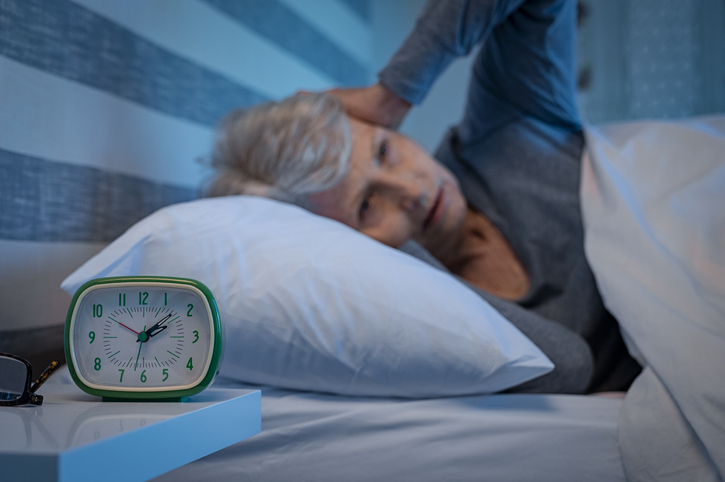
Senior insomnia is common, but can often be reversed with these strategies.
Counting sheep. Tossing and turning. Staring at the clock. If this describes a regular night for your elderly loved one, recognize that he or she is far from alone. While older adults should get around 7 – 9 hours of sleep every night, upwards of 50 percent of all seniors report challenges with falling and/or remaining asleep. Yet it’s significant to note that although senior sleep problems may be common, they are not a normal part of growing older – and there are steps that can be taken to improve sleep for your older loved ones.
First, it’s necessary to rule out a clinical sleep disorder, which can include symptoms noted regularly such as:
- Difficulty with falling asleep even when tired
- Difficulty with falling back to sleep once awakened
- Drowsiness or irritability during waking hours
- Concentration or focus struggles, or falling asleep when sitting still (such as when riding in a car or watching TV)
- Uncontrollable emotions
- Reliance on alcohol or sleeping pills to get needed sleep
The doctor needs to be consulted if a sleep disorder is suspected. For many seniors, however, there’s an underlying cause behind the insomnia. Some of the common causes of senior sleep difficulties are outlined below, along with strategies to help:
- An environment that’s not conducive to rest. Confirm that the senior’s bedroom is dark, quiet, and cool. Remove the TV and any electronics from the bedroom, and stick to a regular sleep routine that begins with relaxing music, a warm bath, reading, or any other calming activities, followed by a set time to go to bed each night.
- Medicine side effects. Assess all drugs the senior is taking – both prescription and OTC – to see if sleep disruptions could occur, and then talk with the senior’s physician about whether any medication modifications are justified.
- An inactive way of life. Remaining as active as possible during the day can positively influence a healthier night’s sleep. Encourage your senior loved one to register for an exercise class, take a daily walk, or join a local swim club and make an effort to swim each day (all with the physician’s approval).
- Chronic disease complications. Medical conditions such as dementia, diabetes, arthritis, and more can produce senior sleep disturbances. Check in with the senior’s physician for recommendations.
- Post-menopause. We know that the hot flashes often experienced in menopause can interfere with sleep, but hormone-related sleep disturbances can continue well beyond menopause as well. The lifestyle changes noted above can help.
Morning Glory Home Care, the leading providers of home and memory care in Greenville, can help with senior sleep challenges in a number of ways as well. Call us at 618-667-8400 to request a free in-home meeting to learn more! And visit our Service Area page to see if our personalized home care services for seniors are available in your area.
